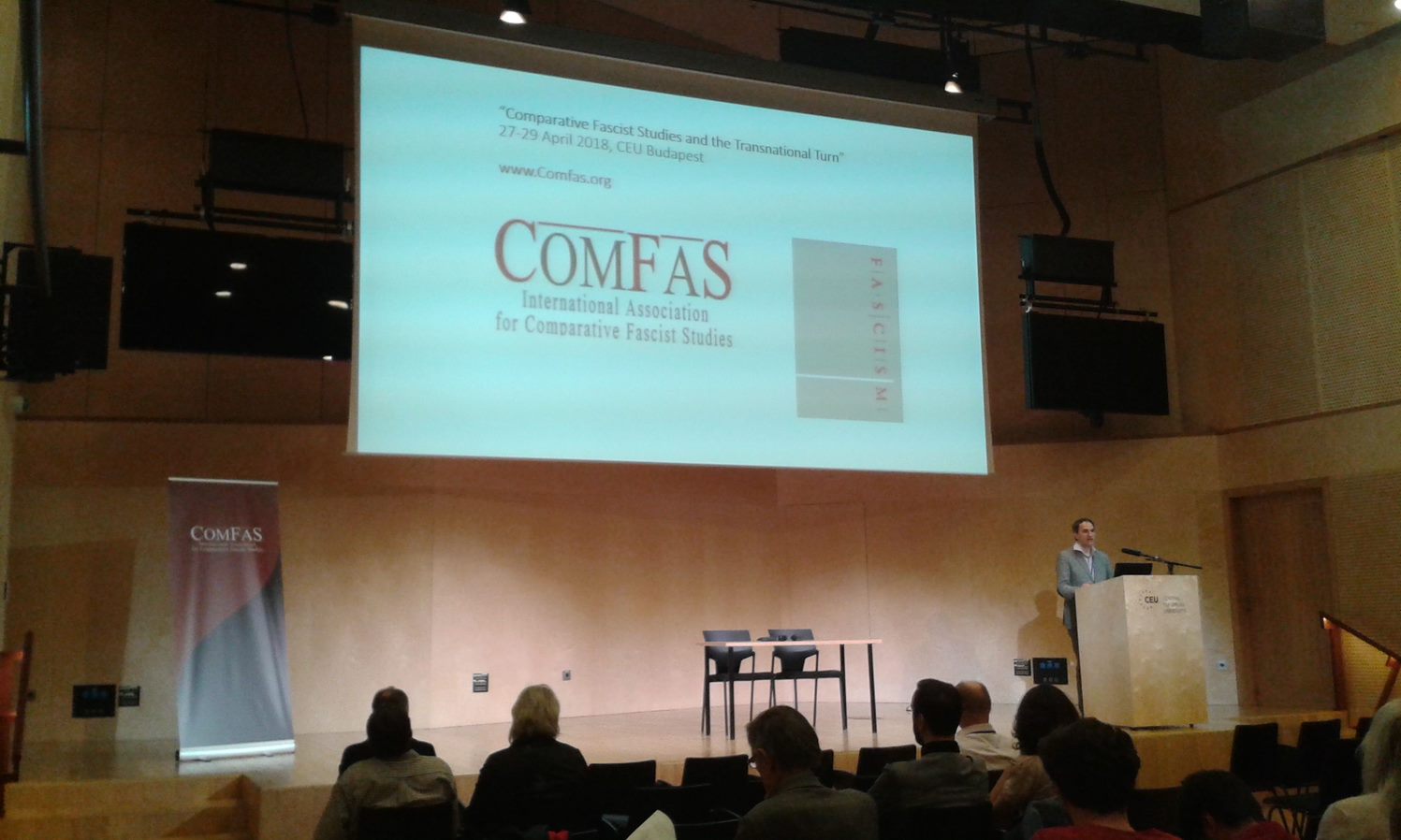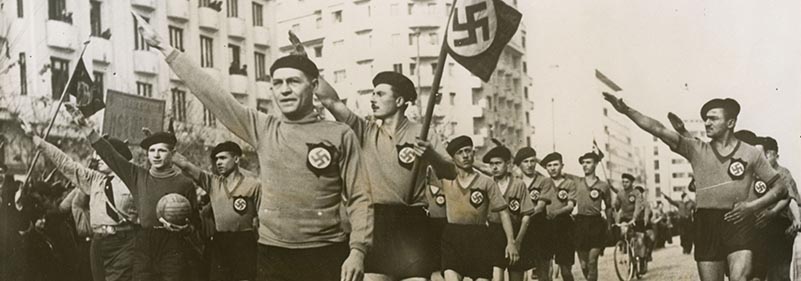
“Historical Fascism as a Global System: Alliances, Interactions, and Entanglements”
Fourth (Online) Convention of the International Association for Comparative Fascist Studies (COMFAS),, Central European University PU, Vienna, 3-5 December 2021
See the Convention Program here.
Conveners: Constantin Iordachi (CEU PU Vienna), Aristotle Kallis (Keele University), António Costa Pinto (Institute of Social science, University of Lisbon), and Sven Reichardt (University of Konstanz).
Event Rationale
Fascism was a transnational political ideology and system of rule. There were fascist movements in almost all European and Latin American countries, and in a sum of other countries around the globe, engaged in a violent assault on democracy and political pluralism. In addition, a large number of authoritarian regimes, while formally rejecting the revolutionary dynamic of fascism, were visibly indebted in their ‘style’ of rule by Fascist Italy and the Third Reich. Yet, so far, fascism has been approached and analyzed predominantly at national or, at best, at European levels. There is a pressing need for global approaches that explore the interactions, exchanges, diffusion processes, and forms of cooperation among fascist networks, movements, or regimes within the larger “family of authoritarians.”
The Fourth Convention of the International Association for Comparative Fascist Studies aimed at exploring the complex web of interactions, exchanges, and histoires croisées between fascist movements, parties, and regimes at regional and global levels, as well as the fascist hierarchical, discriminatory, and genocidal visions for the institutional, economic, and socio-political reorganization of Europe and the global system, as a whole. We invited comparative, transnational, or single case-study contributions exploring topics such as:
- The transnational circulation of fascist ideas and personal contacts
- Forms of cooperation among fascist movements and regimes
- Fascist international organizations and transnational networks
- ‘Centres’ and ‘peripheries’ of global fascism
- Axis Powers: economic, cultural, and military cooperation and exchanges both within Europe and between Europe and Japan
- Subaltern fascisms and relationship between satellite countries and collaborationist movements and the Axis/occupying power
- Themes, modes, and mechanisms of transnational fascist propaganda
- Fascist warfare as a generic phenomenon
- Patterns of violent repression under fascist regimes
- Global interactions among fascists and the radical right in the post-1945 period
- Global interactions between fascists and anti-fascists
A main aim of the Convention was to bridge current research on fascism (broadly defined) in and across continents, in order to help foster synergies and cross-fertilization. To this end, the Convention involved prominent keynote speakers and contributors from all over the world, engaging them in a truly transnational debate on the state of the art in the comparative study of fascism.
The International Association for Comparative Fascist Studies is a nonprofit and nonpolitical scholarly organization dedicated to the comparative and transnational study of fascism (www.comfas.org). The Association is open to graduate students, researchers, and professors at whatever stage of their career. Its aim is to promote new multi-disciplinary research approaches to this field, in a joint effort of scholars from various disciplines and historiographical traditions. COMFAS is based at Pasts, Inc. Center for Historical Studies, at the Central European University, Budapest. The Association’s main publication outlet is the open-access peer-reviewed journal Fascism. Journal of Comparative Fascist Studies (Brill).

